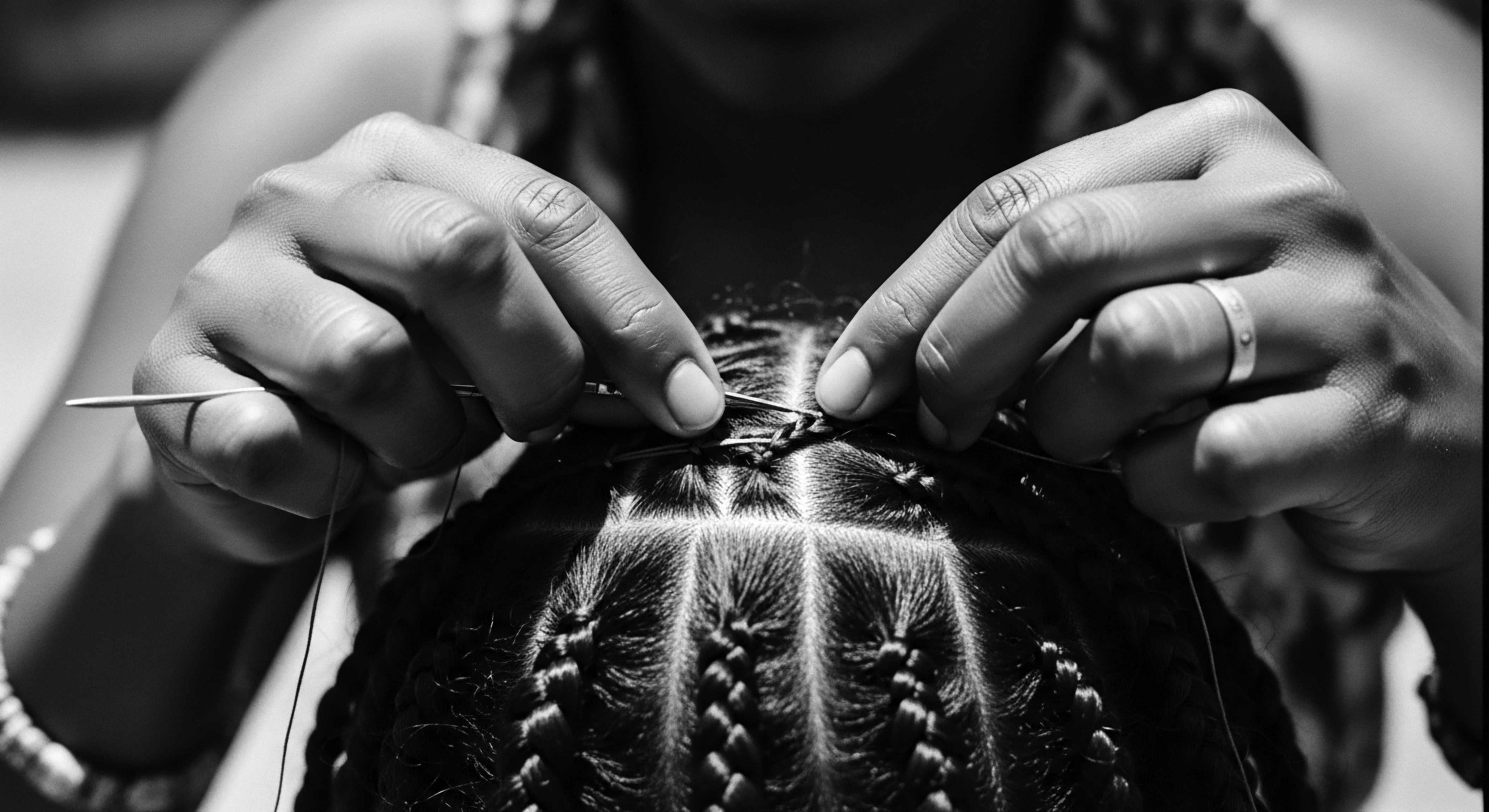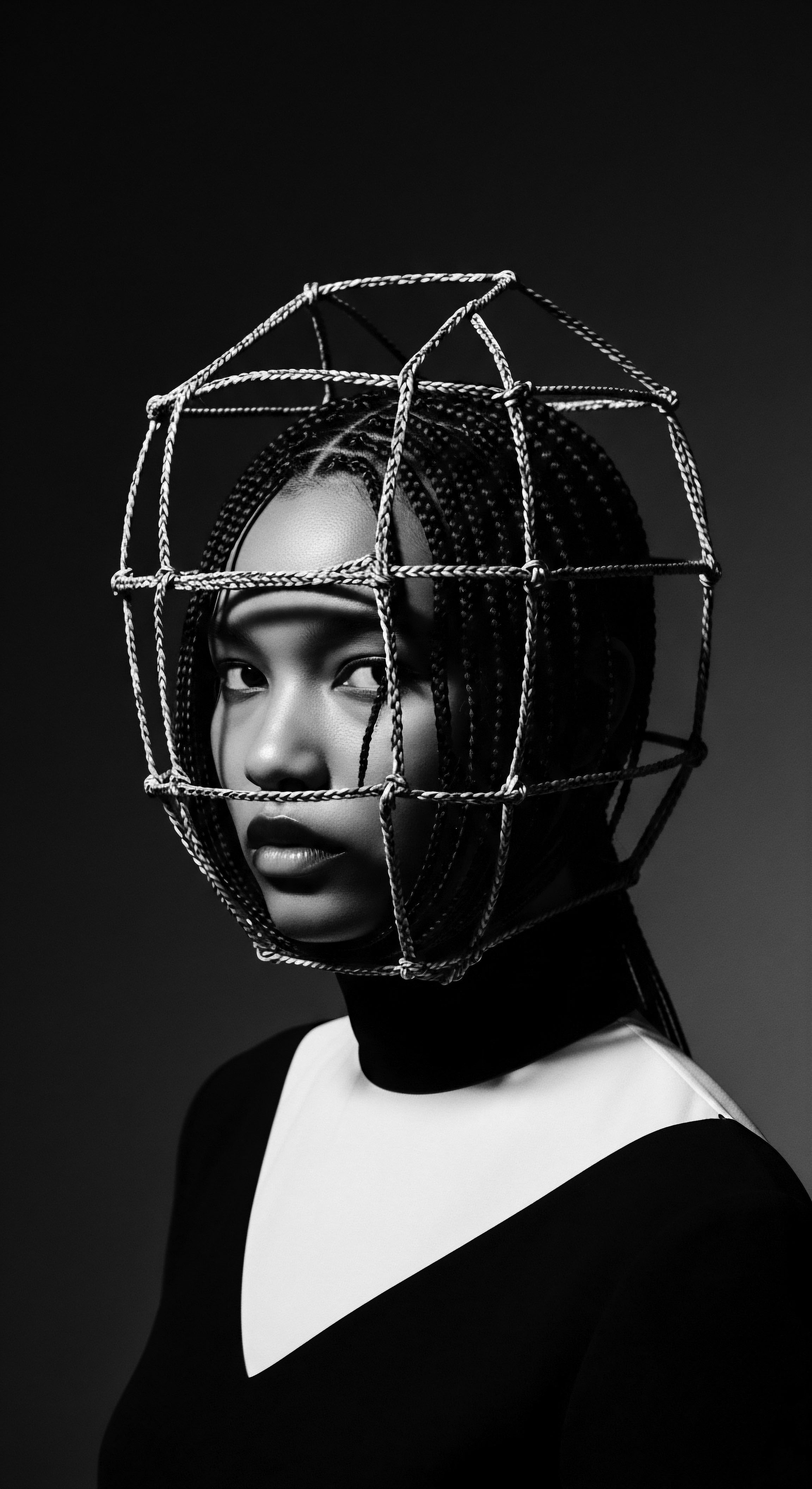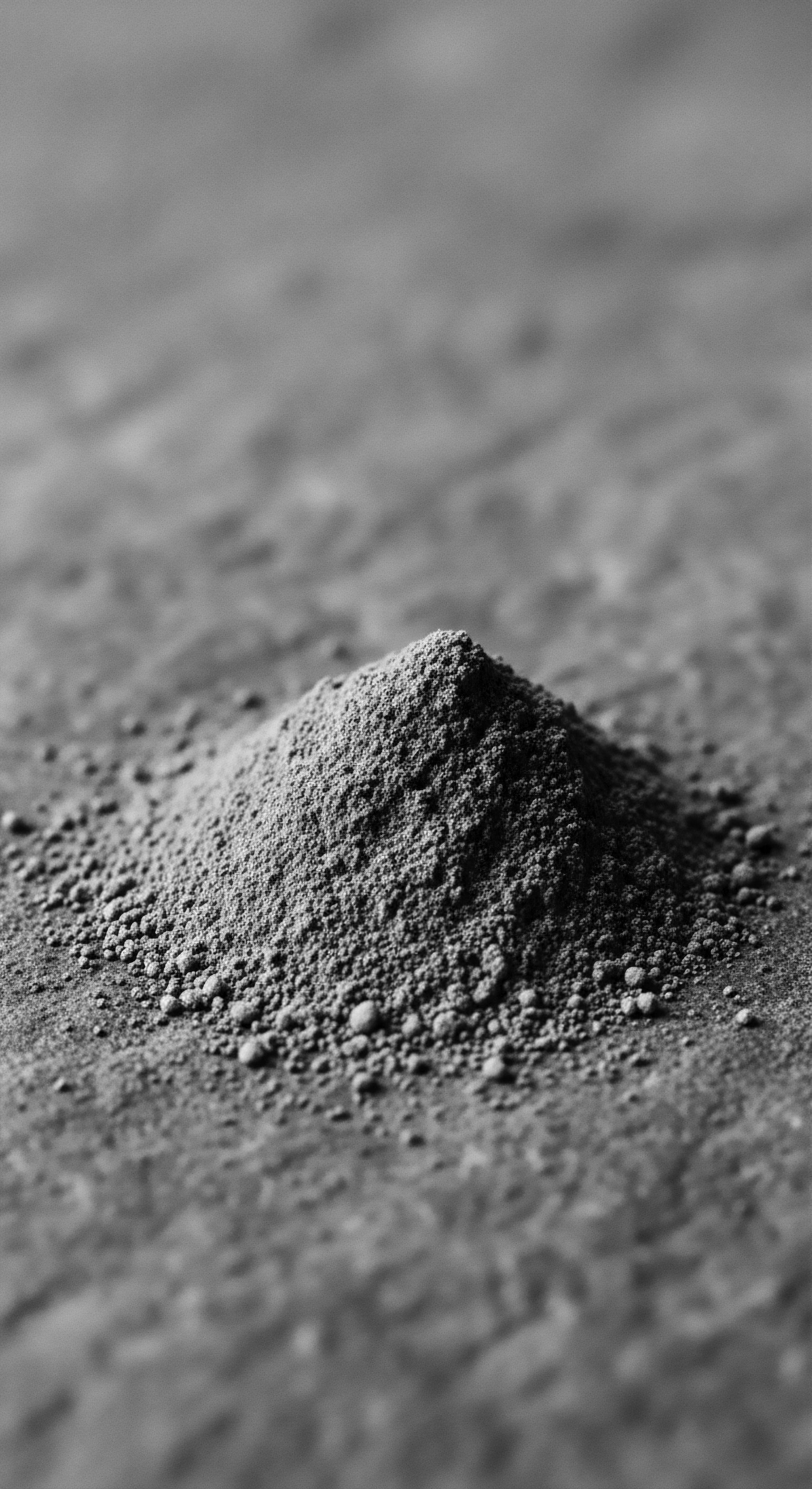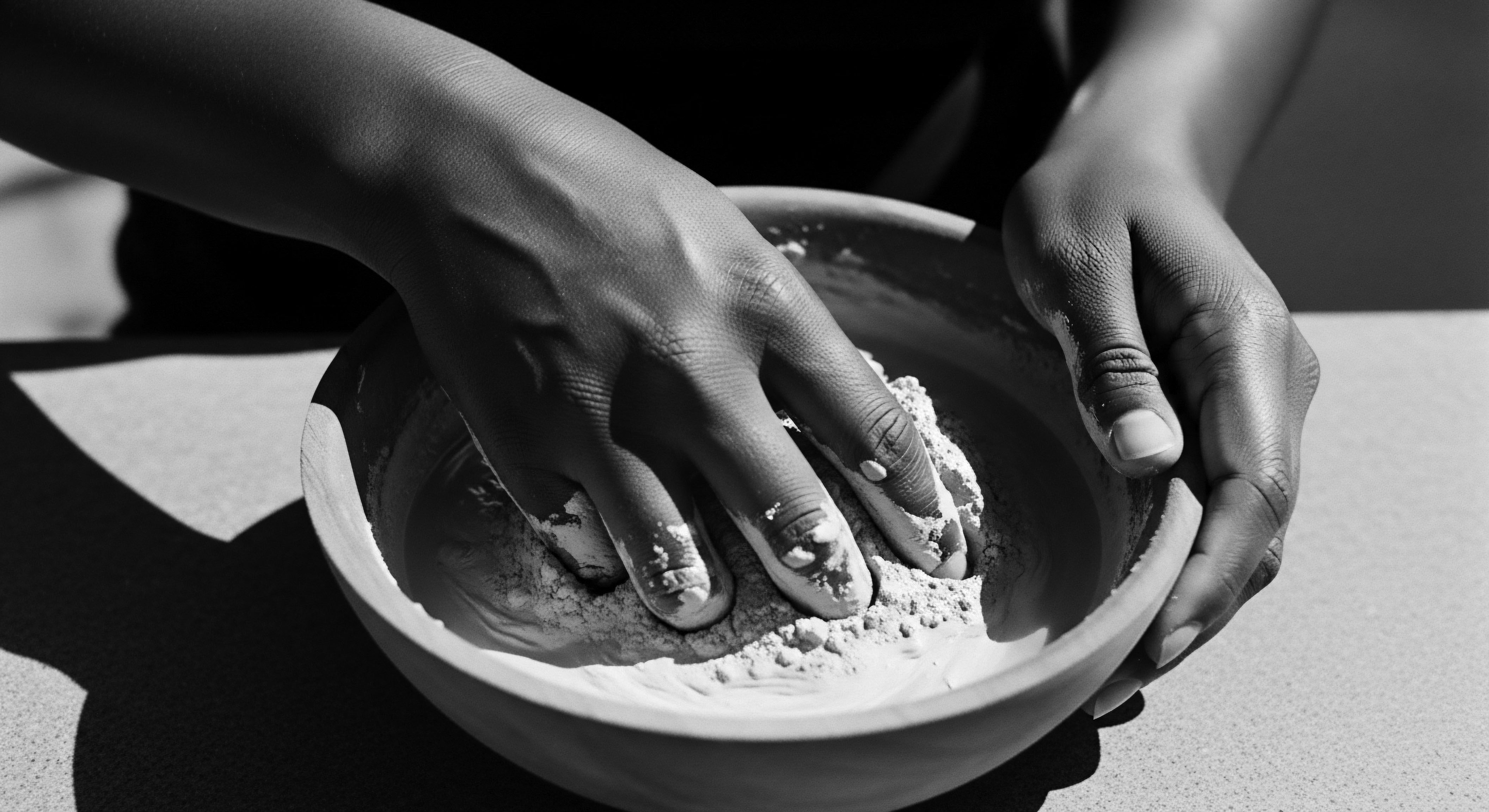
Roots
The very strands that crown our heads, particularly those with a rich texture, hold within them a profound history, a living record of resilience, beauty, and ancestral wisdom. For generations, across the African continent and throughout the diaspora, textured hair has served as more than merely a physical attribute. It has been a language, a map, a declaration of identity, status, and community. To comprehend the cultural role of black soap within this heritage is to peel back layers of time, tracing a lineage of care that stretches back centuries, long before modern chemical formulations became common.
Consider, if you will, the bustling markets of West Africa, where the aroma of shea butter and local herbs lingered in the air. Here, within Yoruba communities of countries like Ghana, Togo, and Benin, a powerful cleanser known by names such as Alata Samina or Ose Dudu began its journey. This indigenous black soap was not simply a commodity; it represented a deep connection to the earth and the ingenious knowledge passed down through matriarchal lines.
Its creation, often a communal process, saw women meticulously transforming plantain skins, cocoa pods, and palm leaves into ash, then carefully blending it with nourishing oils. This was a science born of observation and tradition, a testament to understanding the very biology of hair and scalp through inherited wisdom.
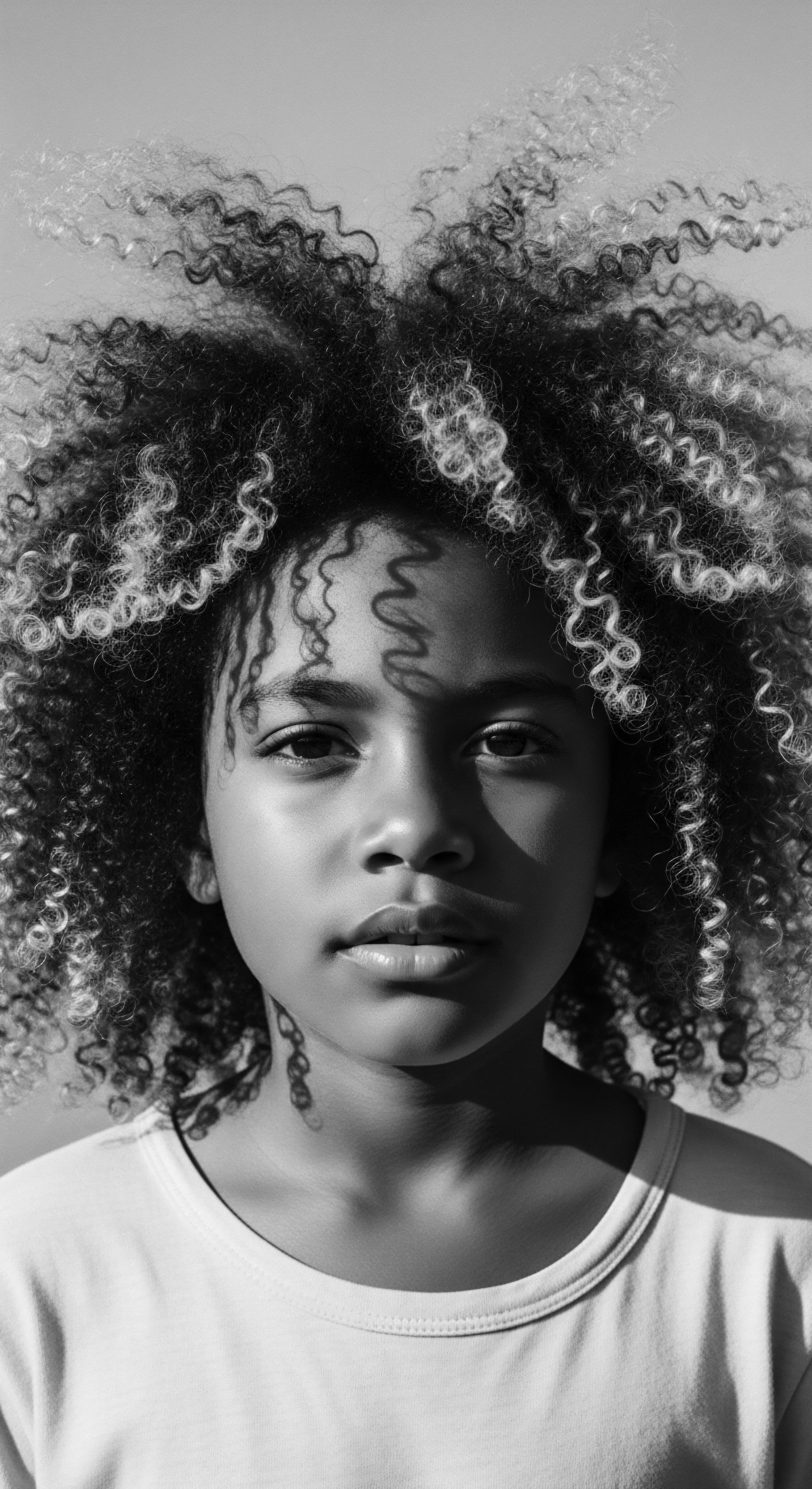
Ancestral Cleansing Rituals
In pre-colonial African societies, the act of hair cleansing was woven into the fabric of daily life, extending beyond simple hygiene. It was a ritual, a moment of connection, a foundational step in a holistic approach to wellbeing. Black soap, with its gentle yet effective purifying properties, served as the cornerstone of these practices. Its natural composition ensured that hair was cleansed without stripping it of essential moisture, a characteristic particularly vital for maintaining the health of textured hair, which is prone to dryness.
Traditional hair care routines often involved not only washing but also oiling, braiding, and adorning, all contributing to styles that communicated social standing, marital status, age, or tribal affiliation. The communal aspect of hair care, often involving storytelling and shared knowledge, strengthened community bonds.
Black soap, a timeless gift from West African heritage, anchors traditional hair care with its natural, nourishing cleanse.
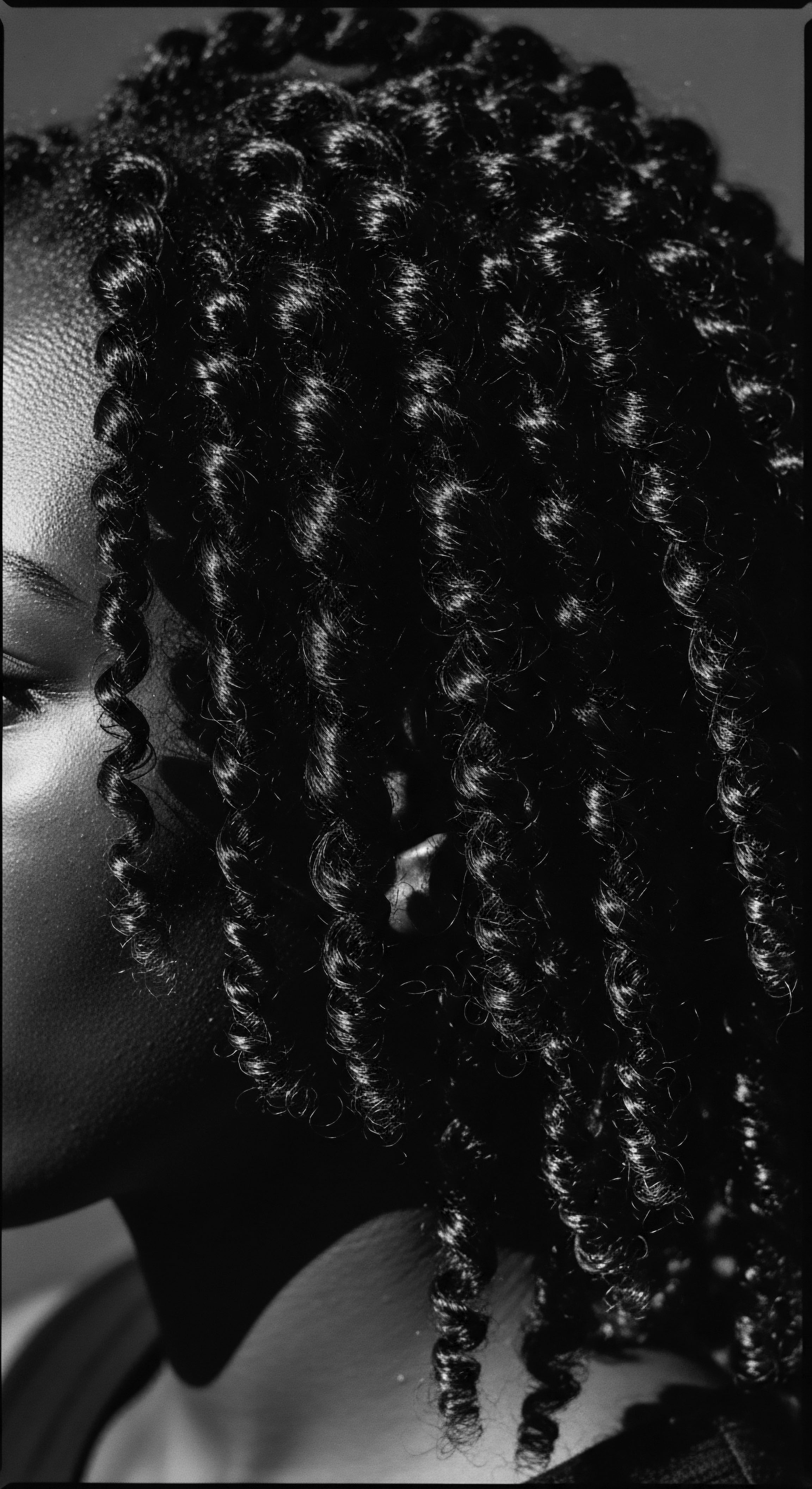
Botanical Wisdom: Ingredients and Their Properties
The efficacy of black soap for textured hair care springs directly from its composition, a symphony of indigenous botanicals, each contributing to its unique properties. The precise formulation varies by region and familial recipe, yet core components remain consistent.
- Plantain Skins ❉ Rich in vitamins A and E, these contribute to the soap’s exfoliating abilities, aiding in scalp health and potentially promoting circulation.
- Cocoa Pods ❉ Providing antioxidants and anti-inflammatory properties, cocoa pods lend a soothing quality to the soap, particularly beneficial for sensitive scalps.
- Palm Kernel Oil and Palm Oil ❉ These oils are integral to the saponification process and provide a wealth of antioxidants and vitamins, contributing to the soap’s moisturizing effect.
- Shea Butter ❉ A revered moisturizer, shea butter is often a generous component, ensuring that the soap cleanses thoroughly without unduly stripping the hair of its natural oils, leaving it soft and conditioned.
These elements, combined through traditional methods, create a product that goes beyond surface-level cleansing, offering a holistic benefit to the hair and scalp. The slight uneven texture of authentic black soap, often with visible flecks, indicates its natural origins and traditional craftsmanship, a far cry from the uniform appearance of commercial soaps. This inherent connection to natural elements and careful preparation speaks to a deep respect for the physical and spiritual aspects of hair, reflecting the interwoven nature of heritage and care.
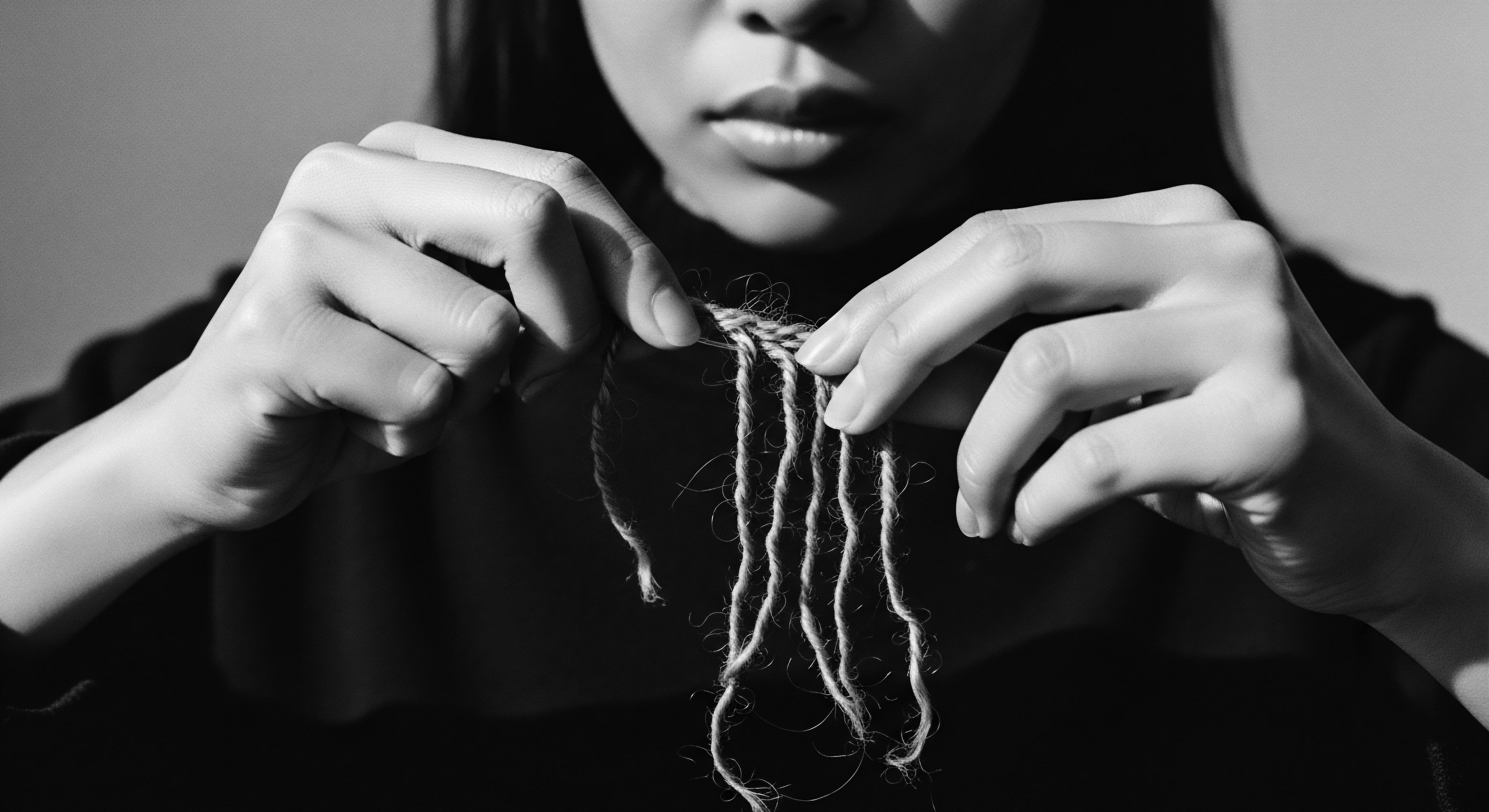
How Does Black Soap Interact with Textured Hair Structure?
The unique helical twists and turns of textured hair, from loose waves to tight coils, necessitate a particular approach to cleansing. The structure, characterized by its natural inclination to dry, calls for a cleanser that respects its delicate balance. Black soap, in its traditional form, achieves this by offering a deep cleanse without stripping the hair’s inherent moisture, a common pitfall of many commercial shampoos. The natural glycerin, a byproduct of the soap-making process, alongside the conditioning oils like shea butter, helps to maintain scalp and hair hydration.
Scientific investigations have noted the presence of phytochemicals, phytosterols, and triterpene esters in black soap, contributing to its anti-inflammatory and antioxidant properties. These compounds are believed to support scalp health, which is foundational for healthy hair growth. A clean, balanced scalp, free from excessive buildup, allows hair follicles to function optimally, receiving the necessary oxygen and nutrients. This interplay of traditional knowledge, which observed black soap’s benefits, and modern scientific understanding, which explains its mechanisms, underscores the enduring wisdom embedded within ancestral practices.
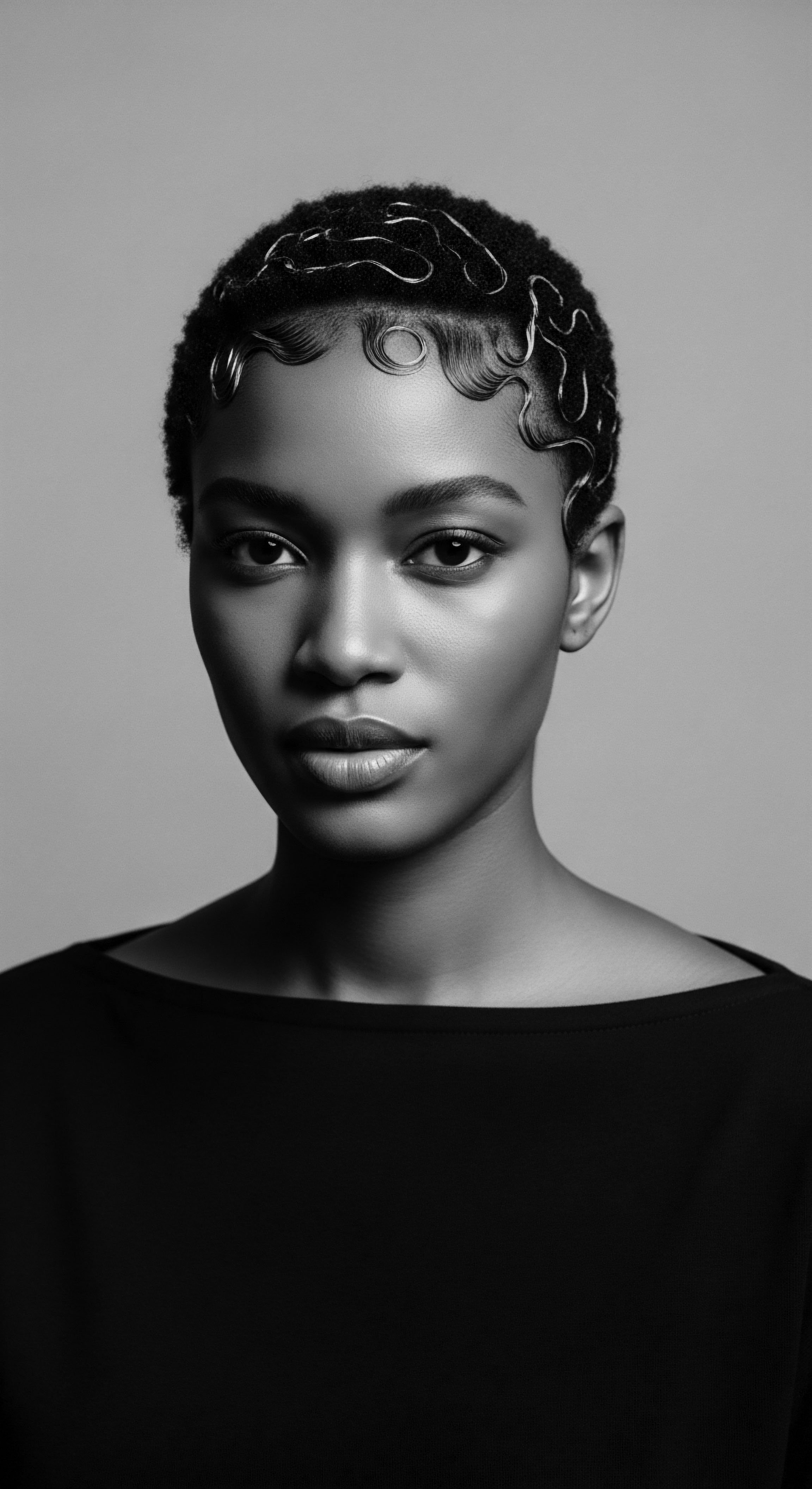
Ritual
The cultural footprint of black soap extends far beyond its chemical composition; it resonates through the very rituals of hair care, shaping how textured hair is prepared, styled, and honored. For Black and mixed-race communities, these rituals are not mere routines; they are acts of remembrance, connection, and self-definition. Black soap, as a foundational cleansing agent, holds a sacred place within this heritage, laying the groundwork for the artistry and protective wisdom applied to textured strands.
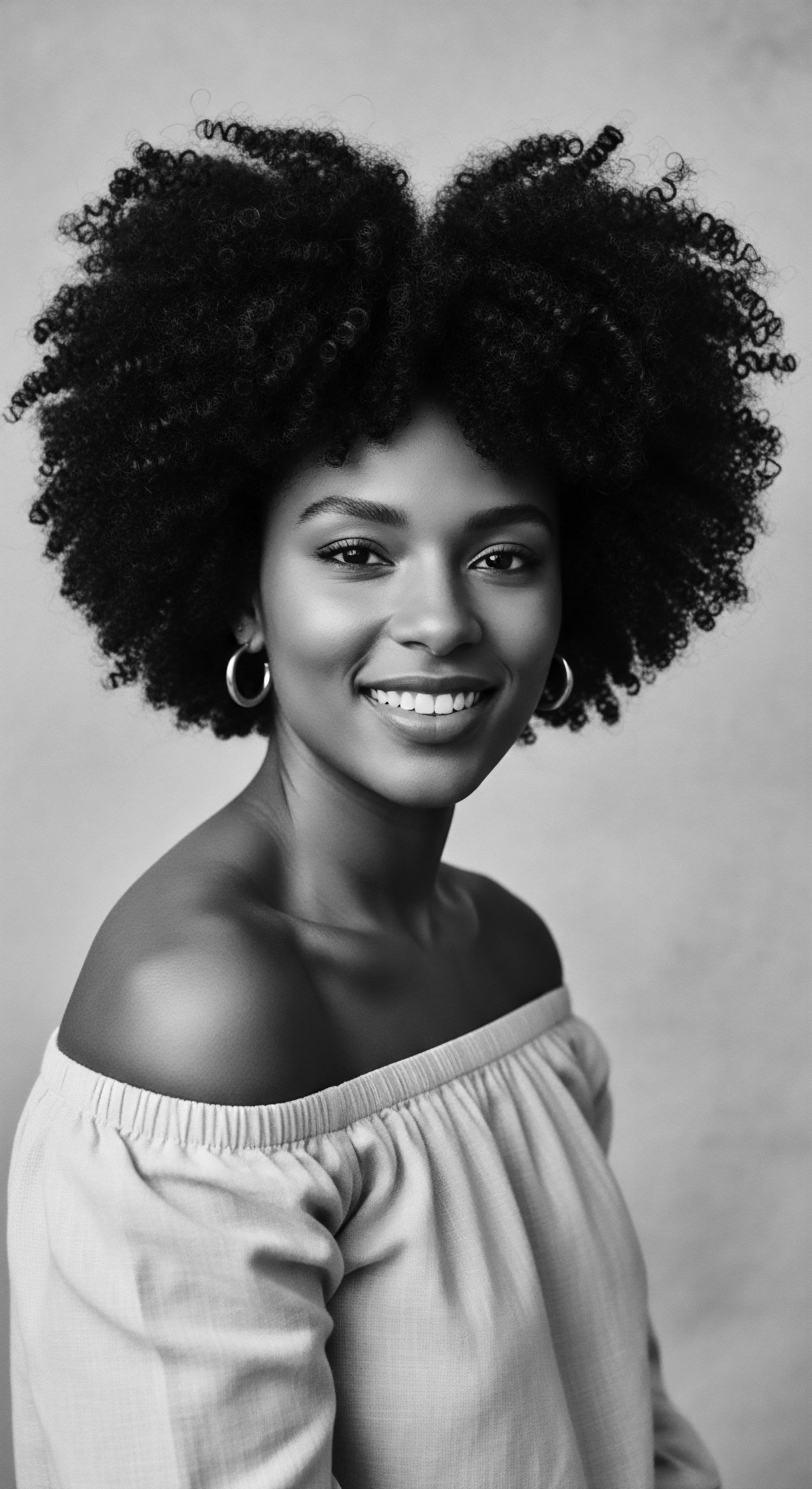
The Sacred Wash Day
Wash day, for many with textured hair, stands as a cornerstone of their care regimen, a dedicated time for deep cleansing, conditioning, and preparation. Historically, and continuing in many traditions today, this cleansing process would involve black soap, often diluted or combined with other natural ingredients to create a potent yet gentle lather. The very act of washing became a ritual, a communal gathering in many African societies where stories were shared, advice exchanged, and cultural values passed down through generations. This shared experience fostered a deep sense of belonging and reinforced cultural identity.
The meticulous preparation of black soap for hair, often involving dissolving shavings in warm water and sometimes tempering its pH with additions like aloe vera or apple cider vinegar, speaks to a conscious, informed approach to care. This careful preparation reflects an understanding that textured hair thrives on mindful engagement, a principle deeply rooted in ancestral practices that valued patience and precision in beauty rituals.

How Does Black Soap Influence Styling Traditions?
The cleanliness and scalp health provided by black soap are fundamental to the success and longevity of various styling traditions. From intricate braids that historically communicated tribal identity and marital status to protective twists that shield delicate ends, a clean, well-cared-for scalp is paramount. Black soap aids in preparing the hair by removing accumulated oils, dirt, and product buildup, ensuring that subsequent styling efforts are built upon a healthy foundation.
Ancestral methods of styling were often a long and intricate process, requiring hours or even days, often involving the entire community. The quality of the cleansed hair, a direct result of products like black soap, contributed to the ease of manipulation and the lasting beauty of these styles. For example, cornrows, dating back to 3000 BC, were not only artistic expressions but also a means to convey identity and social standing. The use of black soap ensured a fresh, receptive canvas for these elaborate and meaningful creations.

Cultural Continuity in Hair Artistry
Even as modern products and techniques have emerged, the spirit of ancestral hair artistry persists, often with black soap remaining a preferred initial step. The desire for organic, natural ingredients, free from harsh chemicals, aligns with the inherent simplicity and purity of traditional black soap. This continuity reflects a conscious choice to honor heritage and to prioritize practices that have proven their worth over centuries. The use of black soap, therefore, becomes an active participation in a legacy of self-care and cultural pride, a tangible link to the ingenious women who first crafted these potent cleansers.
Traditional black soap provides the clean, healthy foundation upon which the diverse artistry of textured hair styling can flourish, linking past and present.
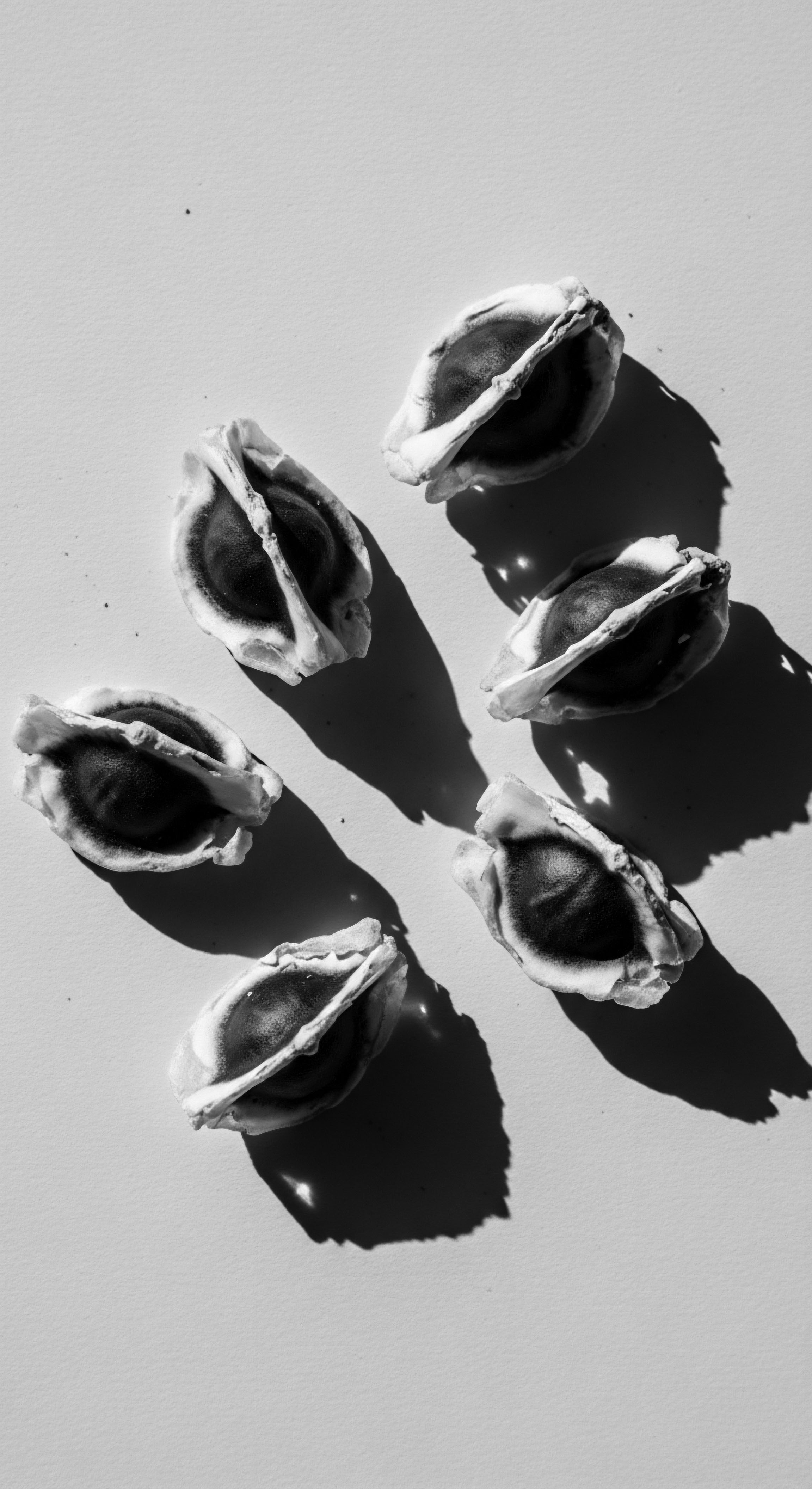
Relay
The journey of black soap within Black hair heritage transcends mere cleansing; it embodies a holistic philosophy of care, a legacy passed from hand to hand, generation to generation. This relay of wisdom, from ancestral practices to contemporary self-care, positions black soap as a vital element in addressing hair wellness comprehensively, solving persistent challenges through a lens steeped in history and natural efficacy.

How Does Black Soap Inform Holistic Hair Wellness?
The concept of holistic hair wellness, deeply rooted in ancestral wisdom, perceives hair as an extension of one’s overall wellbeing, interconnected with spiritual, mental, and physical health. Black soap, traditionally made from readily available natural resources and often prepared by women, fits seamlessly into this philosophy. Its gentle cleansing action, coupled with nourishing ingredients, supports a healthy scalp environment, which is paramount for the vitality of textured hair. This approach differs significantly from a purely cosmetic focus, instead prioritizing internal harmony reflected in external vibrancy.
The antimicrobial properties attributed to traditional black soap can aid in managing common scalp concerns such as dandruff and irritation, creating a balanced foundation for growth. This inherent medicinal quality, observed and applied for centuries, speaks to a traditional understanding of nature’s remedies. A 2019 survey on black soap users, for instance, found widespread satisfaction with its effectiveness in managing various dermatologic conditions, including those affecting the scalp, with 70% using it for overall skin care. This quantitative insight underscores the enduring belief in its comprehensive benefits.
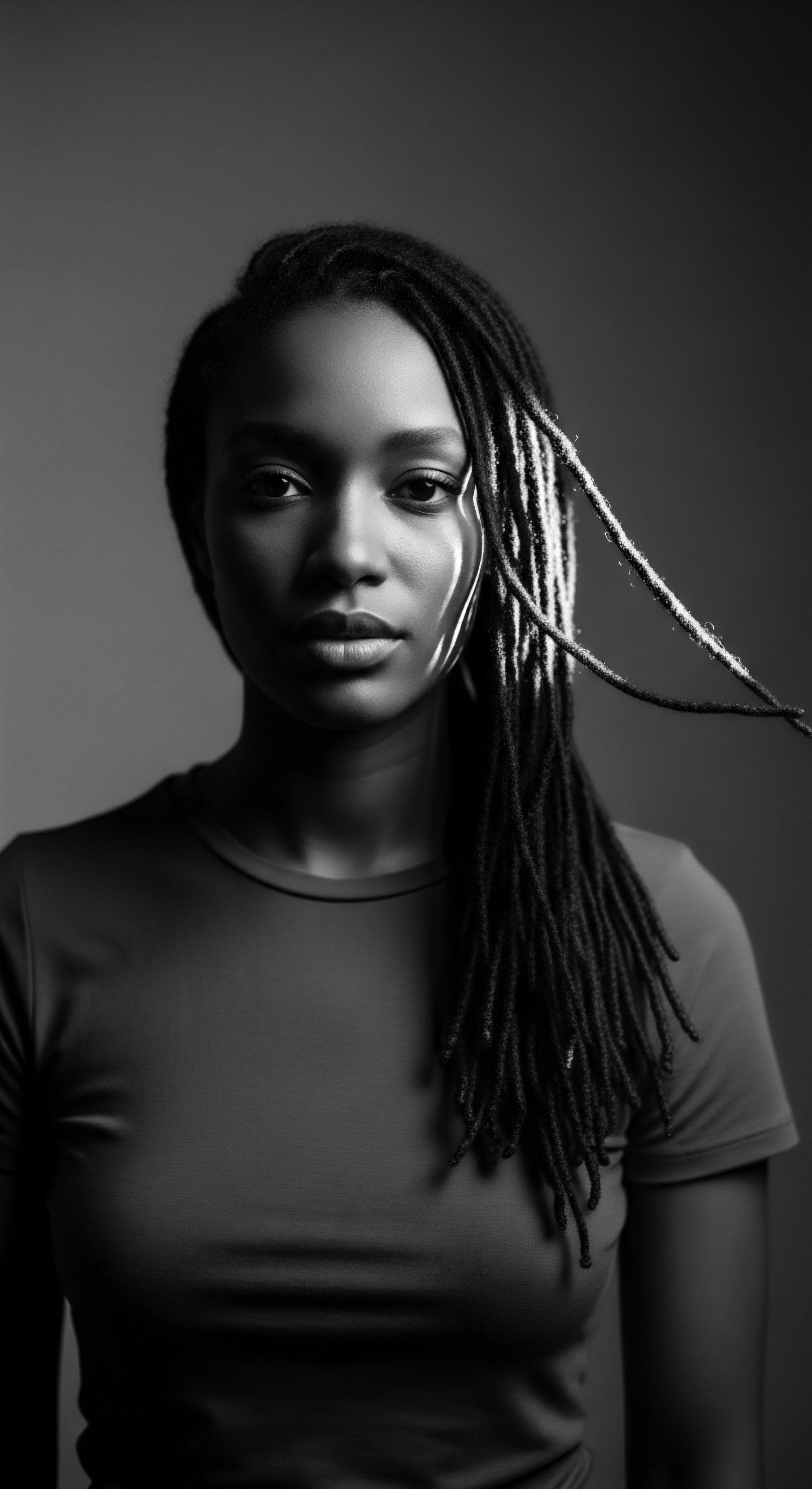
Addressing Textured Hair Challenges with Ancestral Wisdom?
Textured hair, by its very nature, can present unique challenges, such as dryness, breakage, and scalp sensitivities. Black soap offers traditional, yet profoundly effective, solutions to these common concerns.
- Deep Cleansing Without Stripping ❉ Textured hair requires effective product removal without being robbed of its natural oils. Black soap excels at this, lifting buildup from heavy styling products and environmental impurities while allowing the natural oils to remain, preventing excessive dryness.
- Scalp Balance and Comfort ❉ A healthy scalp is the bedrock of healthy hair. The natural exfoliating action of plantain ash and the soothing elements from cocoa pods and shea butter assist in maintaining a balanced scalp, alleviating itchiness and discomfort. This is particularly beneficial for those prone to scalp dryness or flakiness.
- Supporting Hair Resilience ❉ By promoting a clean and nurtured scalp, black soap creates an optimal environment for hair follicles. The vitamins and minerals present in its natural ingredients, such as vitamins A and E, help to strengthen hair strands and reduce susceptibility to breakage. This strengthening contributes to improved hair manageability and appearance over time.
The wisdom embedded in black soap’s use also reminds us that care extends beyond the wash. After a thorough cleanse, ancestral practices would typically involve sealing in moisture with natural oils and butters, often followed by protective styling. This layered approach, where black soap prepares the canvas for subsequent nourishing and safeguarding steps, reflects a deep, intuitive understanding of textured hair’s needs.
Black soap, a bridge from ancient remedies to modern wellness, provides holistic care for textured hair by promoting scalp balance and strengthening strands.
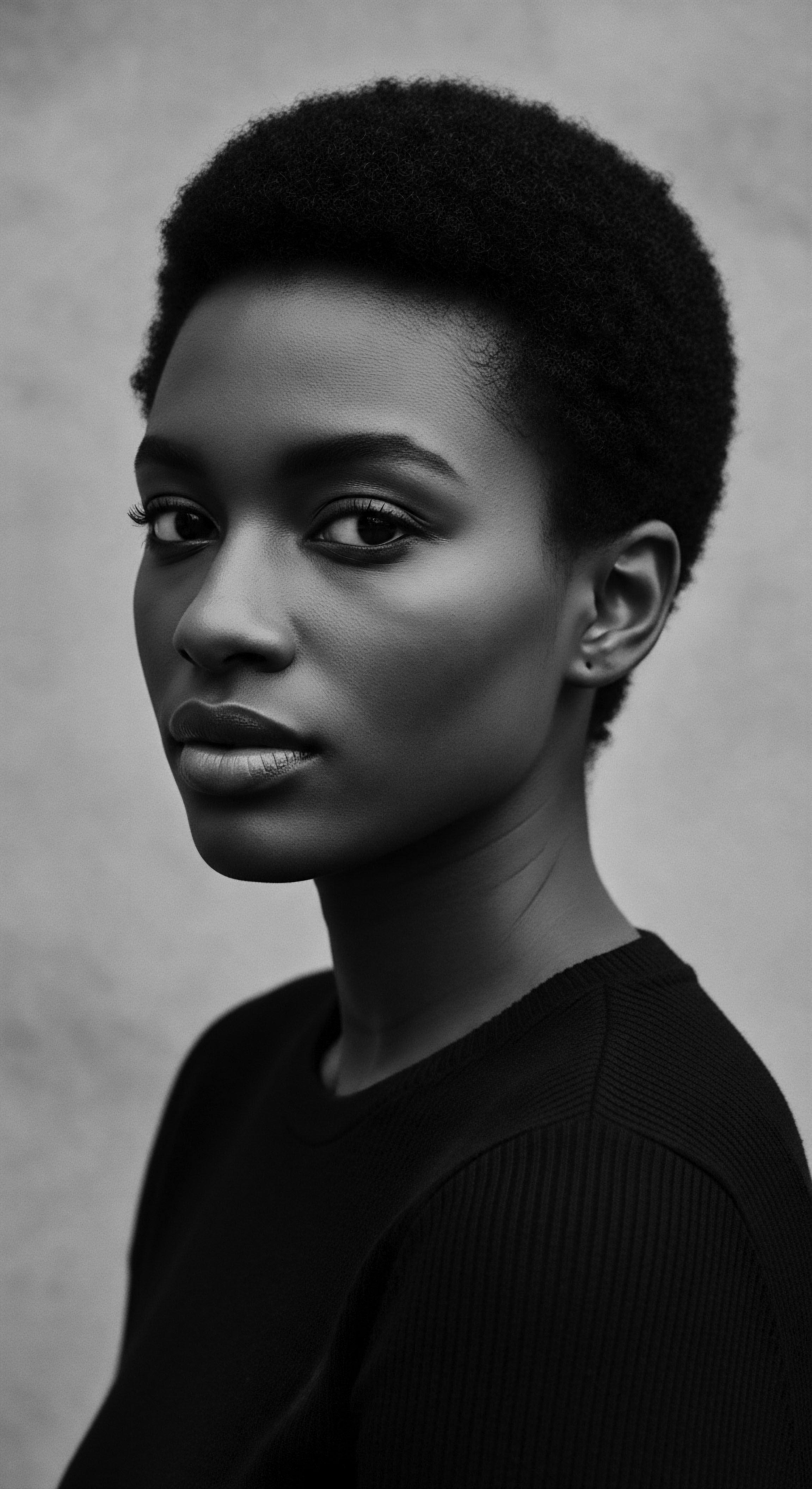
The Nighttime Sanctuary and Protective Practices
For textured hair, the nighttime ritual is as critical as the wash itself. Protecting hair during sleep helps to retain moisture, prevent tangles, and reduce friction that can lead to breakage. While black soap primarily functions as a cleanser, its role in this holistic system is undeniable.
A properly cleansed and hydrated scalp, achieved through the use of black soap, ensures that hair is primed for protective nighttime coverings like satin bonnets or silk scarves. These accessories, while seemingly simple, are modern extensions of ancestral practices that valued protecting hair from environmental stressors and maintaining its integrity.
Ancestral knowledge understood the value of gentle handling and protection for hair, recognizing its vulnerability. This philosophy translates to current practices where hair is meticulously prepared for rest, often moisturized and then secured to minimize manipulation. Black soap, by effectively removing impurities without causing excess dryness, ensures that the hair is in an optimal state to receive and retain the benefits of overnight protection, contributing to overall hair health and length retention. This continuous cycle of cleansing, nourishing, and protecting, often initiated with black soap, is a relay of heritage, carrying forward traditions of mindful care.
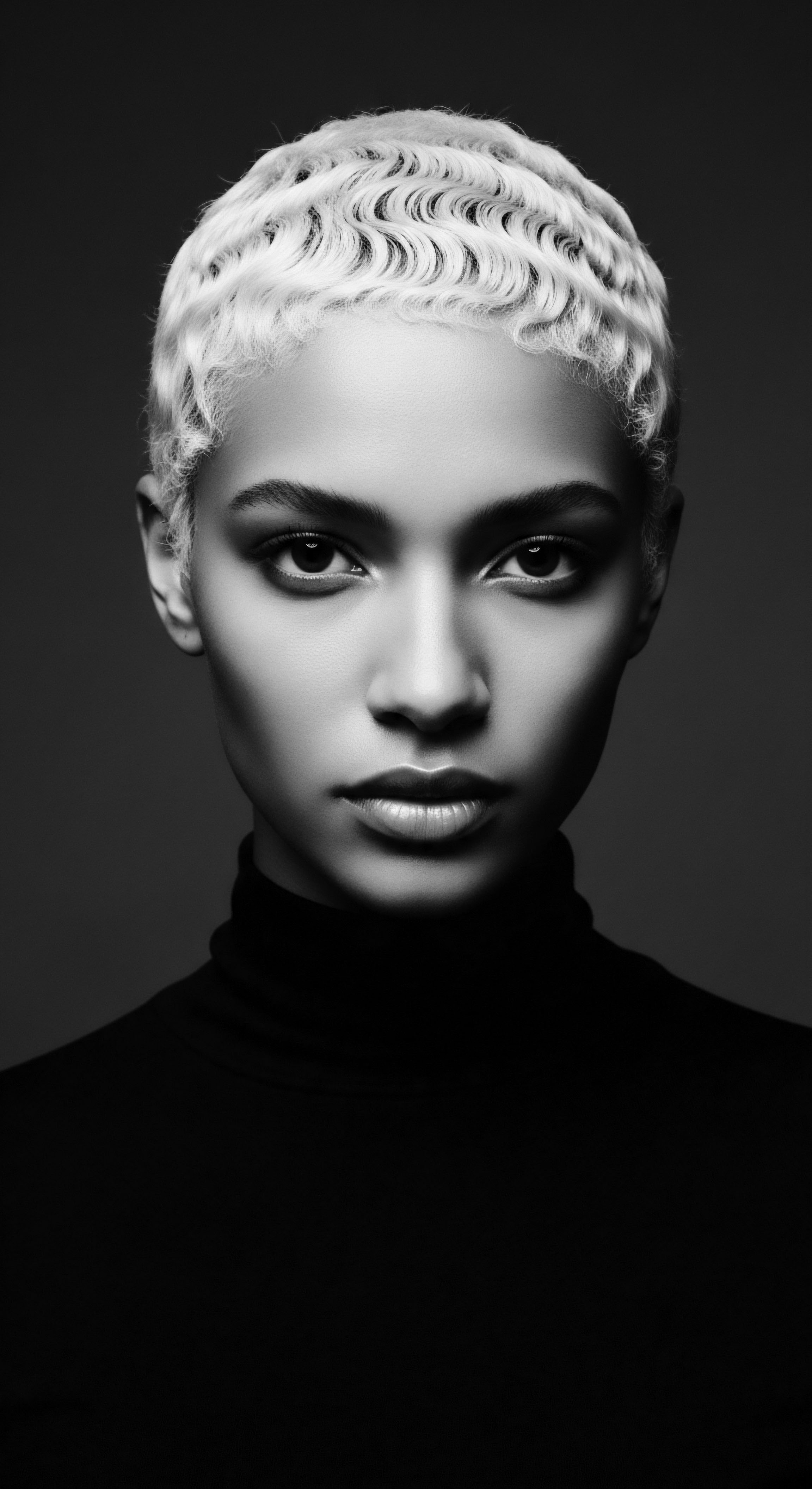
Reflection
The cultural role of black soap in Black hair heritage is a profound narrative, a testament to the enduring power of ancestral wisdom. It stands as a living archive within the ‘Soul of a Strand’ ethos, a silent storyteller of resilience, ingenuity, and profound connection to the earth. From the verdant landscapes of West Africa, where its ingredients were harvested and transformed by skilled hands, to the contemporary spaces where textured hair is celebrated and nurtured, black soap’s journey is one of continuous relevance.
This remarkable cleanser is more than just a product; it represents a philosophy of self-care rooted in deep respect for nature and inherited practices. Its place in wash day rituals, its contribution to scalp health, and its fundamental support for protective styling all speak to a legacy of comprehensive hair wellness. The echoes of communal gatherings, where cleansing was interwoven with shared stories and cultural transmission, still resonate in the intentional acts of care performed today.
Black soap, therefore, offers a tangible link to a heritage that affirms the inherent beauty and strength of textured hair. It reminds us that true radiance stems from a harmonious balance of ancestral knowledge, informed practice, and a heartfelt reverence for our roots.
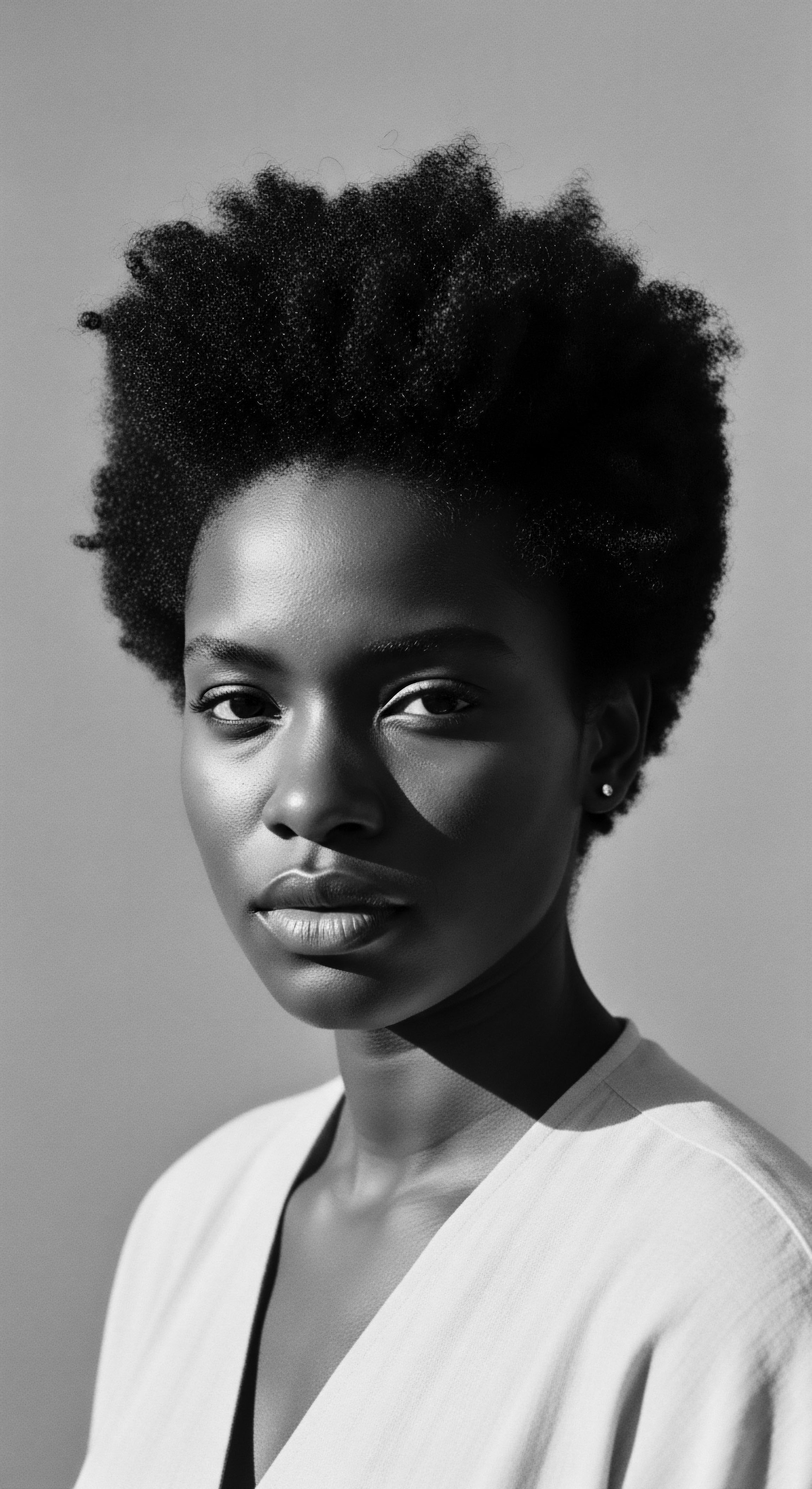
References
- Adewusi, A. O. & Akanle, O. (2020). Ọsẹ dúdú: Exploring the benefits of Yoruba Indigenous black soap in Southwest, Nigeria. Journal of African Religious Practices.
- Alo, E. A. & Oluyole, K. A. (2012). Analysis of the marketing of African black soap in selected local government areas of Oyo state, Nigeria. International Journal of Agricultural Science, Research and Technology in Extension and Education Systems.
- Khumalo, N. P. et al. (2010). ‘Relaxers’ damage hair: Evidence from amino acid analysis. Journal of the American Academy of Dermatology.
- Lin, L. D. et al. (2017). Black soap: A comprehensive review of its history, composition, and uses. Journal of Cosmetic Dermatology.
- Oyekanmi, A. O. et al. (2014). An assessment of the socio-economic status of indigenous black soap producers in Ife Central Local Government Area of Osun State, Nigeria. Journal of Agricultural Science, Research and Technology in Extension and Education Systems.
- Roseborough, I. E. & McMichael, A. J. (2009). Hair Care Practices in African-American Patients. Seminars in Cutaneous Medicine and Surgery.
- Tharps, L. & Byrd, A. (2001). Hair Story: Untangling the Roots of Black Hair in America. St. Martin’s Publishing.
- Ukwendu, A. (2019). The benefits of Yoruba Indigenous black soap (Ọsẹ dúdú) in Southwest, Nigeria. Doctoral dissertation.

